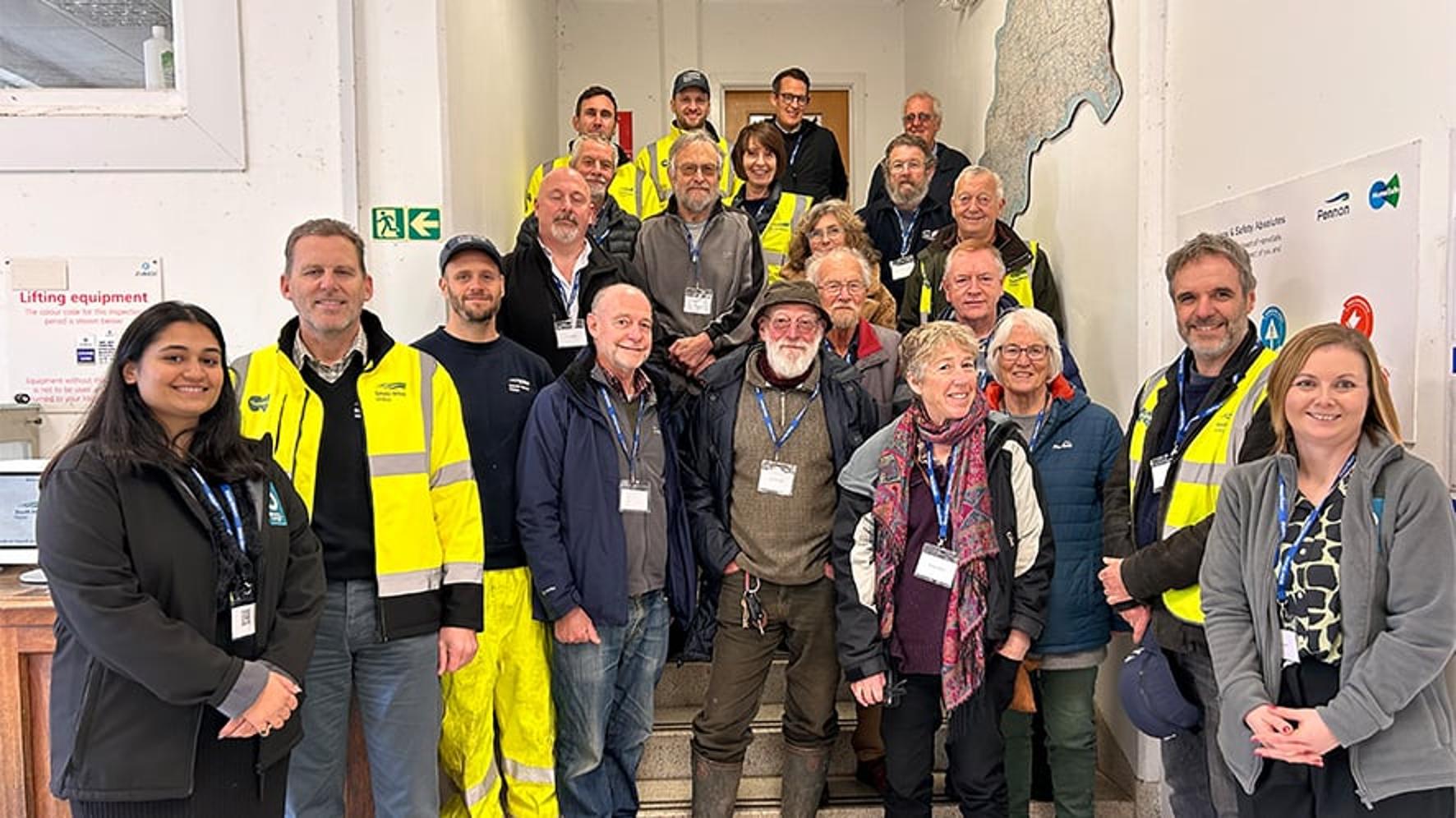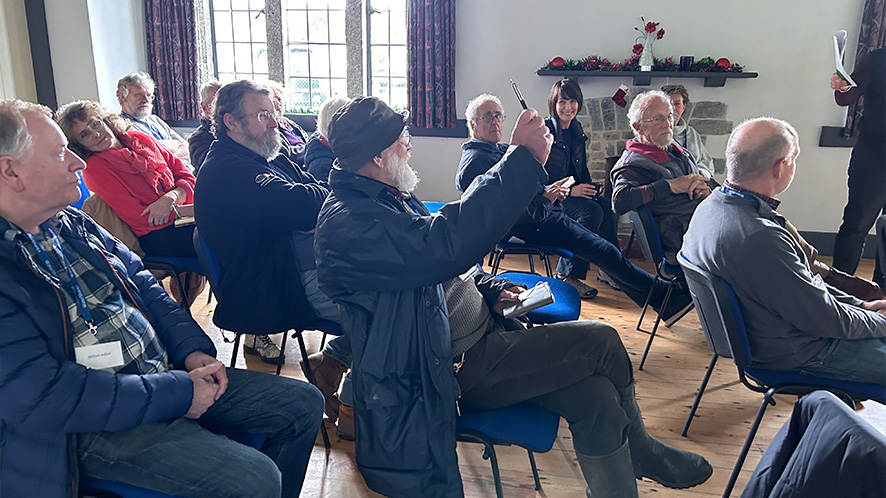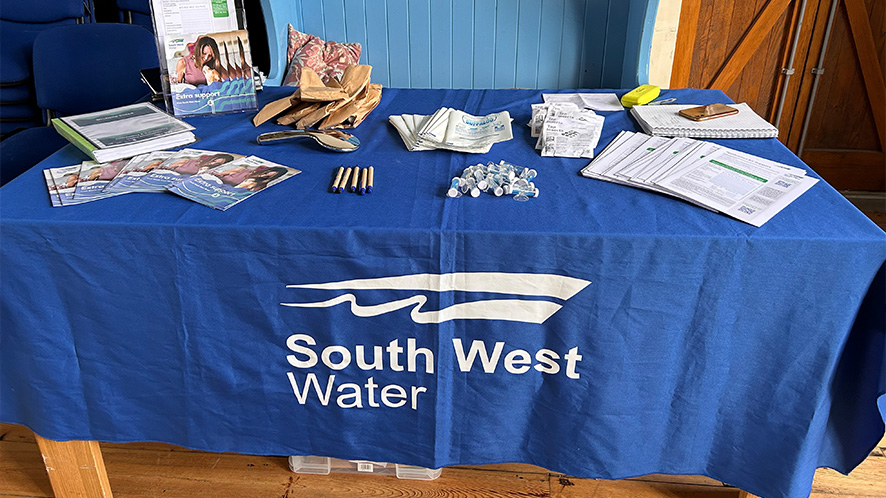WaterShare+ meeting (November 2024)


Cornwall is a rainy part of a rainy country. Why on earth would we need to take drinking water from the sea (desalination), when there’s so much water that falls from the sky? This is just one of the challenges customers put to senior leaders from South West Water at a recent WaterShare+ event.
There were strongly-held views on both sides – so what are the arguments about desalination? What would you ask at the next WaterShare+ session?
Desalination was a hot topic at the recent WaterShare+ event, held in Lanhydrock, Cornwall on 26 November 2024. We’re holding a public consultation on plans to create a desalination works in Par, Cornwall. The plant would process seawater to remove the salt, so it could be used as drinking water.
Some customers at the meeting felt strongly about this issue. They were worried that the project could harm the environment, because concentrated saline is released into the sea. They also saw the project as unnecessary and said that more should be done to store water in reservoirs and prevent water being wasted by addressing leaks on the network.
Our senior leaders and experts listened to customer viewpoints on this. They explained why the desalination plant has been proposed – increasing incidence of drought due to climate change means we need to increase the resource that is available to the region. In the 2022 drought, vital reservoir stocks fell to very low levels. This can result in hosepipe bans and devastating impacts on wildlife.
A desalination plant would provide a source of drinking water for Devon and Cornwall that is independent of rainfall. The scientists and engineers working on the project are proceeding carefully and carrying out tests to minimise any impact on the environment and local area.

The desalination plant is far from being the only way of improving water resilience in the region. We’ve been creating new reservoirs like the one in a disused quarry at Blackpool Pit, which can top up Colliford Rese. There are also plans to link up water resources across the companies owned by our parent company Pennon Group, so water can be moved between regions.
Leakage is another key part of the solution. We are actively addressing leaks, and helping customers to do the same. Driving down leaks is a really important goal, both to address water resilience and to meet regulatory targets. Engineers work on leaks every day of the year – it’s part of the maintenance of the network.
Increasing awareness of water resilience also helps to address the issue. If customers take steps to avoid wasting water all year round, there will be more in the reservoirs as and when a dry spell hits. We’re exploring progressive tariffs that help to nudge customers in this direction.
Desalination would never be an everyday solution
Some customers who attended the meeting were reassured to hear that the desalination plant is intended as a back-up resource that could be turned on when needed, rather than used on a regular basis.
It costs more to produce a litre of drinking water through desalination than through the traditional system of storing rainwater in reservoirs. That’s why the desalination plant is a back up that would only be used when needed.
Is there a pressing issue you’d like to debate with the WaterShare+ panel?
The discussion about desalination took place at a WaterShare+ panel meeting. Members of the public joined the independent panel (including Lord Matthew Taylor, former MP and planning advisor, Carole Theobald, Chief Executive of iSightCornwall and Ben Harper, Chief Executive of Watergate Bay group of hospitality companies) and senior leaders and experts from South West Water.
Attendees were given a tour of Restormel Water Treatment Works, a site that produces a jaw-dropping 75% of Cornwall’s drinking water. The tour covered improvements that have been made since the 2022 drought.
The meeting continued at Lanhydrock Memorial Hall with presentations covering local issues and investment, followed by a Q&A session where members of the public could ask questions and air their views. Debate continued over lunch, as attendees engaged in 1-2-1 chat about the issues and could get more information from exhibition stalls covering topics like affordability and water efficiency.
Why not join us for the next WaterShare+ event? Register for future events online at WaterShare+.
